I know, I know. Having a mental disorder doesn’t make you ‘crazy’ and the Diagnostic Statistical Manual of Mental Disorders (DSM) requires a little more than being ‘sad’ to get a club jacket – but the issue I want to talk about today is so important I had to find some way to get you in here! So I apologize for the sensationalized title. From here on out, we’re strictly business.
For those of you just tuning in, the DSM is a medical text that classifies mental disorders. The newest edition comes out in May and there’s a lot of controversy surrounding some of the changes. (Skim through DSM-V Drama: An Introduction to learn more.) Today’s post is about one controversy in particular: elimination of the bereavement exclusion.
Woah, homie. That’s sounds like an unnecessary use of a double-negative to me.
Good lookin out – but no. The bereavement exclusion actually refers to a disorder criterion used to diagnose major depressive disorder (a.k.a. depression) by the DSM-IV-TR:
Symptoms are not better accounted for by Bereavement, i.e., after the loss of a loved one, the symptoms persist for longer than 2 months or are characterized by marked functional impairment, morbid preoccupation with worthlessness, suicidal ideation, psychotic symptoms, or psychomotor retardation.
In other words, a doctor’s not going to diagnose you with a mental disorder just because you’re sad a loved one passed away. Until May, that is. Then that’s exactly what they’ll have the power to do.
Let’s take a step back
Before we get into the DSM-V, let’s brush up on some basic psychology. Here’s a couple quotes straight from an abnormal psychology textbook (published in 2010):
“Bowlby’s (1980) classic observations reveal that there are usually four phases of normal response to the loss of a spouse or close family member.”
(Time out: Just want to note that those are the authors’ italics, not mine.)
“The normal nature of exhibiting a certain number of grief symptoms has led DSM-IV-TR to suggest that major depressive disorder not be diagnosed for the first 2 months following the loss, even if all the symptom criteria are met.”
However, results from Maciejewski et al.’s study suggest that for most bereaved individuals, depressive symptoms actually tend to peak at 2 to 6 months following the loss, suggesting that the next DSM should lengthen the time period between when grief symptoms start and when an individual receives a major depressive disorder diagnosis.
Talk about awkward turtle…
Nothing will be 100% official until the DSM-V is published in May, but publicly circulated drafts (reported on by major news outlets) have ditched the bereavement exclusion entirely.
So, um, looks like they decided to go a different route…
Speaking of major news outlets, the New York Times published a great op-ed piece on elimination of the bereavement exclusion by Gary Gutting, one of the editors of Notre Dame Philosophical Reviews, if anybody’s interested. (But, in case you’re more interested in that Michael Bolton pic, go watch this video – you’ll thank me around the 1:00 mark!)
Ok, but these people are doctors…
I realize that, for a lot of you, Prayers and Apples may be your main source of information on this issue, in which case child you best get yourself a subscription of Psychology Today! I feel an added responsibility to present a comprehensive view of both arguments. It wouldn’t be right to just pump you up with my own opinions and then send you out into the world. That’s like telling your kid the sky is purple then sitting back as he fights with his friends who tell him it’s blue. (By the way: why does every guy on earth think that’s such a funny idea?! Every boyfriend I’ve ever had brings it up when we talk about kids!)
So let’s see what a member of the DSM-V Member Work Group – speaking as a representative of the American Psychiatric Association (APA) – has to say. (Dr. Kenneth S. Kendler’s points are in quotation; my responses are below.)
Heads up: If you’re good with skipping all the details, jump ahead to the little mouse picture!
First, the grief exclusion criterion – which states that someone who has experienced a recent bereavement is not eligible for a diagnosis of major depression – was not present in the two major psychiatric diagnostic systems that formed the basis for the DSM-III – the diagnostic manual that is the immediate precursor of our current DSM-IV. Rather, it was added to DSM-III largely on the basis of the work of one of the DSM-III task force members who was then studying grief and was carried forward with little modification into DSM-IV.
This seems like one of those things you’d want to keep to yourself. If two major psychiatric diagnostic systems were reviewed to form the basis of a definitive medical text and neither of them included a chief diagnostic criterion – but one of the guys working on the project was really interested in grief studies and decided to slip it in anyways… and then it made it into the next edition fourteen years later (DSM-IV, 1994)… and then the text revision edits six years after that (DSM-IV-TR, 2000)… I don’t know. It seems like if you’re trying to establish credibility, you might wanna just brush that one under the rug.
Second, the other major psychiatric diagnostic system used in the world – the International Classification of Diseases – has never had a grief exclusion criterion for major depression.
Isn’t this the same kind of logic we used to use when our friends’ parents would say they could go to a party but our parents would say no?
Third, a broad range of evidence agreed to by both sides of this debate shows that there are little to no systematic differences between individuals who develop a major depression in response to bereavement and in response to other severe stressors – such as being physical assaulted and raped, being betrayed by a trusted spouse whom you learn has been unfaithful or a beloved child whom you are told is dealing drugs, having your doctor tell you that your breast or prostate biopsy for cancer is positive or the loss of your treasured job.
All jokes aside, this point raises some serious issues – and I’m not saying I disagree. However, other severe stressors, such as the ones outlined above, are not inescapable facets of life. One could arguably survive an entire lifetime without experiencing any of those events; but no one who has a life can experience it without confronting the notion of death. Therefore (because this seems like the type of place someone should say ‘therefore’), I argue that bereavement is different from other severe stressors – even if systematic responses to its experience are not – and for that reason deserves to be handled differently by the DSM.
Not to trivialize the mourning process, but at some point you have to give humans the chance to be human. Yes, dealing with death is hard – but you don’t get out of life without having to do it.
Dr. Kendler continues:
So the DSM-IV position is not logically defensible. Either the grief exclusion criterion needs to be eliminated or extended so that no depression that arises in the setting of adversity would be diagnosable.
Again, I think the argument I just outlined defeats this claim. The grief exclusion criterion does not need to be eliminated or extended; “Bereavement, i.e., over loss of a loved one” (as it appears in the DSM-IV-TR) simply needs to be understood as categorically distinct from “depression that arises in the setting of adversity.”
Fourth, the vast majority of individuals exposed to grief and to these other terrible misfortunes do not develop major depression. That does not mean, and here is the source of much confusion, that they do not grieve. They do. It does not mean that they do not feel terrible pain and loneliness. They do. Depression is a slippery word and we are so used to using it to mean “sad”, “blue”, “upset” or, in this specific case, “grieving.” Major depression – the diagnostic term – is something quite different.
I don’t know if this is a really long post and I’m just getting tired, but this point seems really fuzzy to me. Is eliminating the bereavement exclusion in the next DSM supposed to be okay because “the vast majority” of people suffering from bereavement aren’t going to develop major depression? So we’re not supposed to be concerned because most individuals “exposed to grief” aren’t going to be affected? Didn’t Immanuel Kant have something to say about this? Something about the inherent dignity of the individual…?
Finally, diagnosis in psychiatry as in the rest of medicine provides the possibility but by no means the requirement that treatment be initiated. Watchful waiting is important tool for all skilled clinicians. […] As with the psychiatric response to the other major stressors to which we humans are all too frequently exposed, good clinical care involves first doing no harm, and second intervening only when both our clinical experience and good scientific evidence suggests that treatment is needed.
Ok, this is the only other point I can kinda get down with. Dr. Kendler is right: psychiatric diagnosis does not require that treatment be initiated. However, his argument is self-defeating. If elimination of the bereavement exclusion is intended to facilitate care (i.e., treatment) for grieving patients that wouldn’t have otherwise fallen under the umbrella of depression, isn’t arguing that eliminating the bereavement exclusion ‘doesn’t mean that you actually have to treat grieving patients’ kind of like shooting yourself in the foot?
WOW!
That was a lot of talking!
Don’t even ask about that picture LOL I wanted to use the caption, “And then this one time, at band camp” …and then I found that cute little mouse… and lots of times psychology experiments use little white mice and… I don’t know. I’m like delirious from all this typing haha :)
I know more than half of you have probably fallen asleep by now, but in case you couldn’t tell, elimination of the bereavement exclusion just really, really blows my mind!
Goin in for the kill…
The National Institute of Mental Health claims that 14.8 million American adults suffer from depression. An estimated one in every four – that’s approximately 58 MILLION people – suffer from a diagnosable mental disorder in any given year. Are we legitimately concerned that too many people are gonna fly under the radar?!
And what about the idea of a group of doctors defining how sad – and for how long, and with what behavioral characteristics – you can be over the loss of a loved one before you’re no longer considered ‘normal’? Is no one else concerned that this might be a bit of a slippery slope – giving doctors even more leeway to define normative behavior and then empowering them with the authority to label people as ‘mentally disordered’ when they don’t fit in? I’m not trying to sound like a conspiracy theorist here, but think of it this way:
It’s like fighting with your neighbor over putting up a fence. You’re worried if you give him an inch, next thing you know he’s gonna take over your whole yard. But that’s not the problem. The real issue is, if you give up a little land, now this dude’s on your property. And you don’t know what type of person’s going to move into his house next.
We’ll just let that one sink in for a little…
My problem with the DSM-V change is that it suggests compounding the grief of someone in an already vulnerable state with the stigmatization of a mental disorder – in the process, making it easier for doctors to write prescriptions for psychotropic drugs that will then alter their brain chemistry and possibly affect them for the rest of their lives.
(And before somebody calls foul on that psychotropic drug leap):
Are one in ten Americans not currently taking antidepressants? And oh that’s right, I forgot. Once you receive a DSM diagnosis, the average doctor usually tells you to go buy a yoga mat and start practicing downward dog.
If we’re going to have a real conversation, then let’s have a real conversation. If you walk into a doctor’s office and he diagnoses you with depression, you’re probably walking out with a prescription.
So in a nutshell:
The bereavement exclusion doesn’t prevent grieving patients from receiving appropriate help; it prevents the psychiatric community from medicalizing grief and treating it in the way that they want to.
And if helping grief-stricken patients is really our only goal, then that should be the end of it.
I understand that insurance companies might not cover bereavement counseling because it doesn’t carry a DSM diagnosis – but are we really ready to start labeling ourselves ‘mentally disordered’ just so Blue Cross Blue Shield will have our back? Call me crazy, but I think there might be another way to go about this…
Sighhhh…
You know what I feel like? I feel like I teleported into that book, Brave New World, before their whole global society thing was formed. (Stick with me, I haven’t lost my mind…) And a couple of the leaders are standing around and one goes, ‘You know what would be great? We should create a universal economy, give everyone hallucinogens and put an end to natural reproduction!’ And everyone’s like, ‘Yeah! That’s the best idea ever, Bob!’ And I’m the only one in the room going: ‘Um, something about this feels a lil fishy. Does anybody else think this might not end so well?’
I know that’s an extreme analogy, but seriously: You’ve got to stand up and question things. Maybe not everything, maybe not every time. But this – I mean, a group of medical professionals are about to tell you that being excessively sad over the death of a loved one is an evidentiary sign that you suffer from a mental disorder. If you’re not going to stand up and question that – well, then… you can’t tell me my Brave New World analogy is that far off.
Can’t wait to hear your thoughts!!
References
Image source: C.S. Lewis Pinterest
American Psychiatric Association. (2012). DSM-IV-TR. Retrieved: 21 March 2013.
American Psychiatric Association. (2012). DSM Frequently Asked Questions. Retrieved: 21 March 2013.
American Psychiatric Association. (2013). Ethics Resources and Standards. Retrieved: 21 March 2013.
Butcher, J., Hooley, J., and Mineka, S. (2010). Abnormal Psychology (14th ed.). Mood Disorders and Suicide (pp. 222-223). Boston: Allyn and Bacon.
Kendler, K.S. (2010). Grief Exclusion. American Psychiatric Association. Retrieved: 21 March 2013.
Maciejewski, P.K., Zhang, B. Block, S.D. & Prigerson, H.G. (2007). An Empirical Examination of the Stage Theory of Grief. The Journal of the American Medical Association, 297(7); 716-723. doi:10.1001/jama.297.7.716
Ryerson University. (2012). Depression Grief Chart. Retrieved: 21 March 2013.

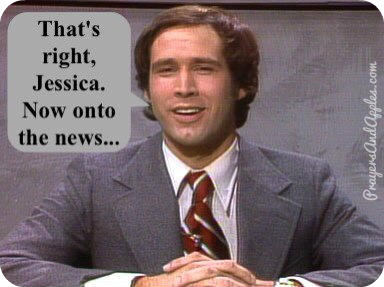
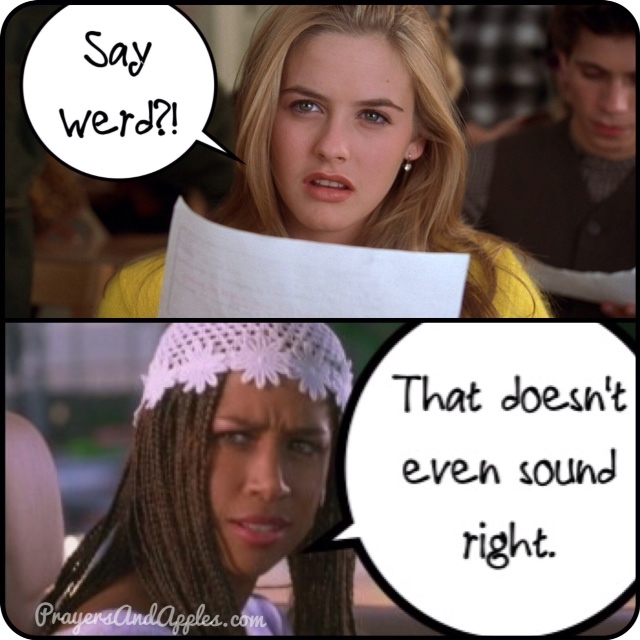
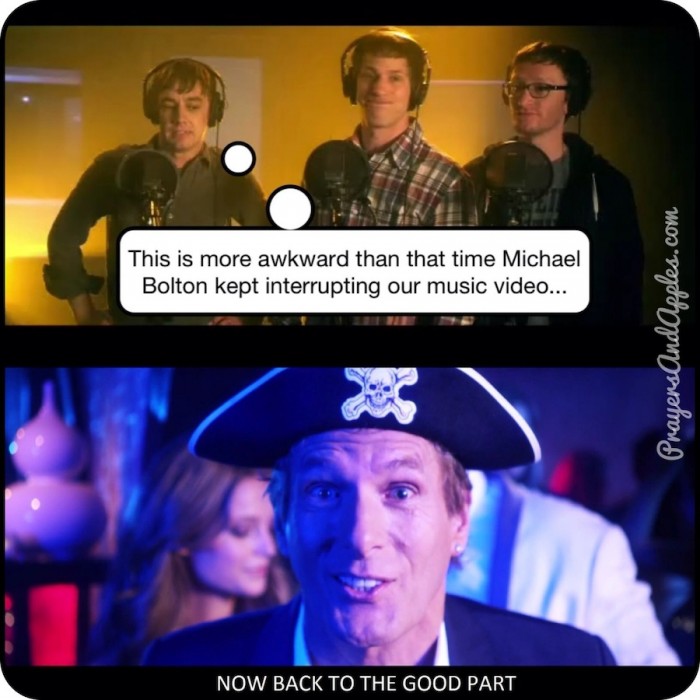


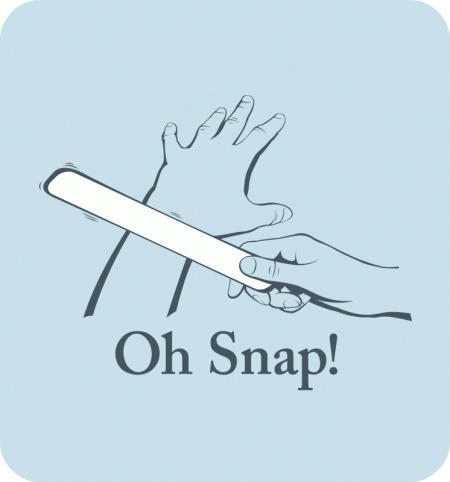
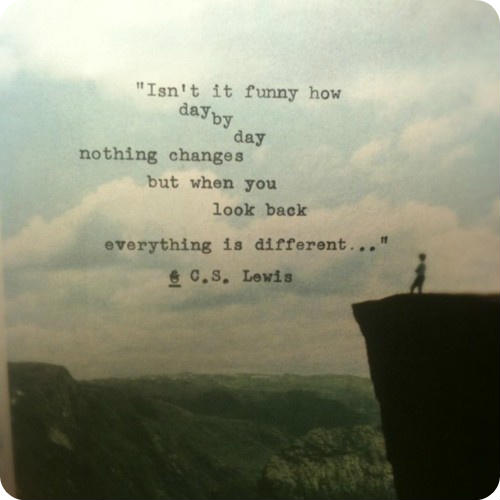

Hi Jessica! I know you pop by my blog so you probably know I suffer from depression. Mental Disorders are very personal in my family. My Great Grandpa Killed hisself and my sibling is Schizoaffective and I suffered from an eating disorder and battle depression as well. I’ve tried everything non medical to help and honestly some days they do help and other days I spend laying on the couch waiting for my feelings to pass. I can’t tell you why, what, or how I feel sad… I just do, it happens. I run, do active positive thinking, and eat a non processed, non hormone diet. That does help a lot but sometimes every once in a while it’s not enough.
When this issue I have mixed feelings. I believe WAY too many doctors hand out pills before they even get to know their patients. It happened to my sibling and they ended up being on a medication (from her first visit) that made things completely worse. My therapist told me after my first visit, “You may be depressed but you know what? I don’t know you that well yet.” THAT is how I knew I found someone good. Depression is a very complex disorder, something you can’t control, something deeper than just “being sad.”
Most people don’t understand. With this issue I have to say I kind of agree with taking the exclusion off. I say this because I’ve seen it happen in my life. I had a friend who lost a close loved one. A month later she was so depressed, she ended up taking her own life. I think the issue has come to light because of all the media surrounding Mindy McCready’s Suicide. She was depressed after the death of her boyfriend.
Some people get such hard blows in life and they simply can’t handle it. It can send you into a deep dark spiral downward and in a very short period of time.
I think that if it’s not removed some people that really need help will not be able to get it. (Like my friend) However, DOCTORS need to get to know their patients before handing out pills! That is my number one BIGGEST complaint. I know about the effects of mental disorders and how some people NEED medication. I’ve been there, my family has been there, we know how hard it is to deal with emotions you can’t control or understand. I think we need to be harder on the Doctors to take the time and get the right meds to the right people.
I must say you did an AMAZING job on this article and I’m so glad I found your blog. Mental Disorders are something too many people don’t understand and are afraid of. Thank you for bringing up the issue and getting it out there!
Hi Ashley! Thanks so much for taking the time to comment and share your thoughts! You raise some really great points (and I’m so, so sorry to hear about your friend and family members). Btw: I wish all doctors were like yours! You’re right: it’s so important that people find the care they need. I guess where I’m coming from is I’d just rather they receive that care *without* a major depressive disorder diagnosis. Doctors still can (and do right now!) treat grieving patients and acknowledge that their experience can be identical to major depression – the difference just comes with the label and the *approach* to care. (You also make another great point about doctor responsibility – we’re 100% on the same page!) Really enjoyed reading your thoughts (and love your blog too!) Thanks again for stopping by! :)
PS. Just wanted to add: I also agree that sometimes a ‘positive approach’ just isn’t enough and medication is 100% needed :)
Great job on this post! You can tell you worked hard on it. Especially love the awkward turtle reference. Being someone who has been misdiagnosed with anxiety on a first time visit and left with confusion and zombie medicine I totally agree there are too many doctors out there handing out pills. I wish there were more doctors like Ashley’s!
Thanks Bell! I def thought of your misdiagnosis… and I’m not even kidding, I thought of you when I typed ‘awkward turtle’ too lol :)
This is a fantastic piece of information and writing Jessica, from both view points.
Its certainly a difficult one isn’t it. My father passed away 2 years ago while I was living and working on the other side of the world, the shock was immense and leaving my Mum so soon after the funeral was both heart-breaking and horrendous, you could suitably say I was majorly depressed and barely getting through the basics in life for the following year possibly, 18 months. I realise everyone’s grieving process is different but to diagnose this time as a ‘mental illness’, to me seems a little insulting to those that have true and far reaching imbalances mentally and physically and is indeed a slippery slope.
Unfortunately death is a part of life ~ we all have to face it at some time ~ harsh as it sounds ~ this is life not a mental illness. This is when friends, family, faith, possibly anti-depressants (for a limited time) need to kick in, (I would also love to say lifestyle but when one is grieving and depressed healthy living and taking care of oneself takes a back seat) rally around and we help each other carry the burden of grief that lasts forever but does get easier with time.
Its a difficult subject for me to comment on as the U.S Medical Care / Medical Insurance seems like a minefield of inept-ness (is that a word) ;) and something that is completely foreign to me. Thankfully 18 months after the effect I returned home and sought some counselling which my Dr recommended, this was subsidised by the NZ Government thankfully but it is something I gladly would have paid for out of my own pocket also.
Again, Jessica thanks for sharing a great load of information for us. Bless x
I’m so sorry to hear about your father, Sandra. I can’t begin to imagine how difficult that must have been, and still is today – sending support and prayers your way. As usual, our thoughts are right along the same line – I especially agree with your observation that diagnosing someone grieving the loss of a loved one with a mental disorder ‘seems a little insulting to those that have true and far reaching imbalances mentally and physically’. I had originally planned on including a paragraph addressing that same thought, put it got lost in all my ramblings! Thanks for taking the time to share your thoughts and story! I’m so glad you were able to receive support that was really helpful :)